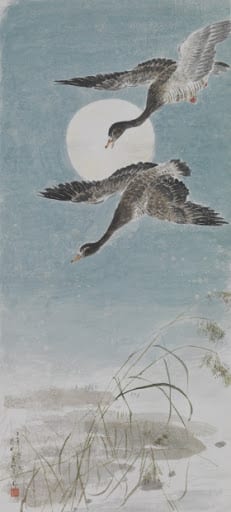ZEN IN FIVE MINUTES
The Eight Worldly Concerns
James Ishmael Ford
Several people have asked me to address the eight worldly concerns and how they relate to Zen practice.
If you’re not familiar with them, they’re a description of the distractions of our lives. In the Lokavipatta Sutta. In Thanissaro Bhikkhu’s translation we are told, “…(T)hese eight worldly conditions spin after the world, and the world spins after these eight worldly conditions. Which eight? Gain, loss, status, disgrace, censure, praise, pleasure, & pain. These are the eight worldly conditions that spin after the world, and the world spins after these eight worldly conditions.”
These eight are usually paired up as four hopes, and four fears that correspond to those hopes. Gain and loss, status and insignificance, praise and censure, and pleasure and pain.
To call these the conditions that spin the world isn’t much of an overstatement. The assumption in Dharma circles is that these are all part of the wheel of life, and of suffering. And people long to get off that wheel.
In much of the Buddhist world the practice is avoiding those states or attitudes that are unhealthy while cultivating those that are benign or positive. Probably the most famous of such things is metta or lovingkindess practices, where we attempt to reframe our attitudes in life.
A lot of hard work. And, I believe, worthy.
And Zen tends to take another angle on this.
It brings to mind a story about the great Eleventh century Chinese poet Su Dongpo.
He made his living as a government official. And he was a serious householder practitioner of our intimate way. Apparently, his poetry caused him to lose jobs more than once. For instance (in Arthur Waley’s translation) he wrote:
Families when a child is born
Hope it will turn out intelligent.
I, through intelligence
Having wrecked my whole life,
Only hope that the baby will prove
Ignorant and stupid.
Then he’ll be happy all his days
And grow to be a cabinet minister.
Anyway, there’s a great story about him that I think fits the issue of the eight worldly concerns.
For a while he lived across the banks of a river from the Zen master Foyin. They became close friends. At some point in his practice the poet felt the settling of heart and mind, and he composed a poem.
“I bow my head to the heaven within heaven
Hairline rays illuminating the universe
The eight winds cannot move me
Sitting still upon the purple golden lotus
If you missed it, the eight winds are the eight worldly concerns.
He had the poem carried across the river. Not long after the poem was returned. Written across the bottom was the single word: fart.
He immediately ordered a boat and was taken across the river. When he got to the master’s hut, the door was shut, but a sheet of paper was tacked to the door. A two-line verse was written on the paper.
“The eight winds cannot move me
But one fart blows me across the river.”
In any traditional Zen story this is where the poet would have his great realization.
And, who knows? Maybe.
What I can say is the spinning world is no doubt spinning. And as far as our human hearts are concerned it really is a matter of gain and loss, status and insignificance, praise and censure, pleasure and pain.
But this is the deal. The Pure Land, the awakened mind, liberation, do not occur elsewhere. And these very things are the energy of our human world. Trying to crush the impulses is missing the real point. How is it that we let go of our grasping after these things? How do we instead, learn to play with them like a child with a toy, who when it is time to get up and go home for dinner, just leaves them for another time?
Everything in its right time. Nothing held onto with a death grip.
And, what does that look like? That poet Su Dongpo, in fact sings to us exactly what it can look like.
To what can our life on earth be likened?
To a flock of geese,
alighting on the snow.
Sometimes leaving a trace of their passage.
I loved the image of being blown across the river by a fart. Such a lovely image for a person of Zen. But honestly, if you want to understand how to use the eight winds rather than be buffeted by them, it’s this poem of geese, and that sometimes trace that captures the whole of the mystery…













